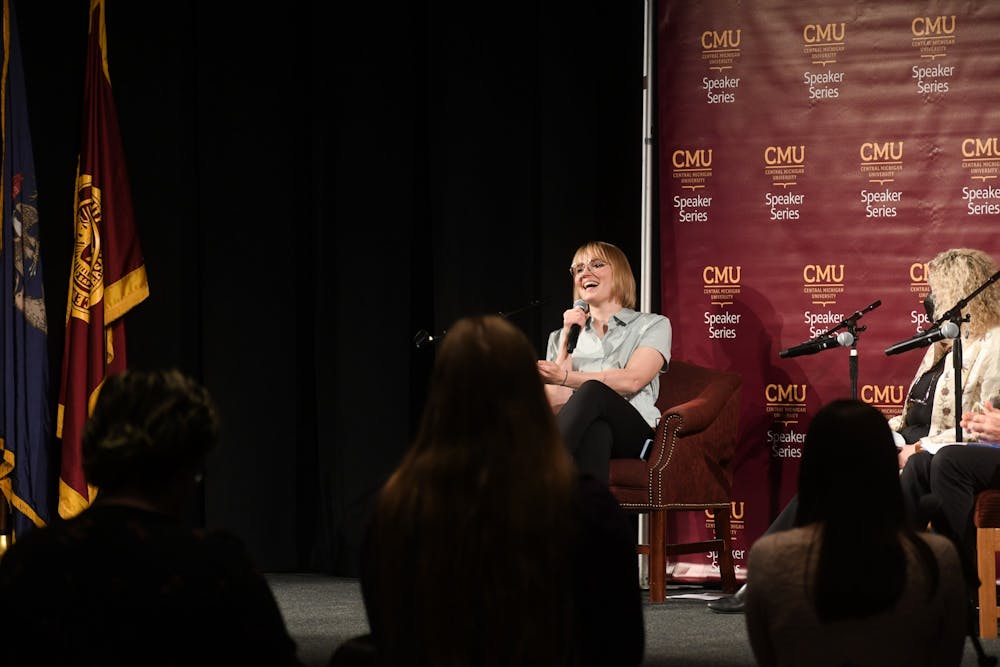Veronica Roth, author of 'Divergent,' discusses the challenges of creativity
On Oct. 27 in the Plachta Auditorium, New York Times best selling author Veronica Roth spoke to the public about her journey and struggle with creativity.
“What is the good of creative work that goes unshared?” Roth said.
Roth opened with a story from her childhood of how reading helped her to cope with a difficult relationship with her father. When driving to her mother's house in the winter, her father's cigar smoke would blow back into her face. Roth said she preferred the smell of books to the smoke, so she would bury her face in a story.
During her speech, Roth talked about how writing is an outlet for her. Whether she was stressed or going through a hard time, she said she turned to creating stories as a way to cope. She said the value of a story isn’t in the final product, but in how the writer feels about it – whether readers like it or not.
Roth also shared how criticism, though unpleasant, is essential to growing. During her time at Northwestern University, she attended a class that was specifically designed to critique and rip pieces of creative work apart. Roth said "it was awful," but it taught her two things: to not give up and to not "wall yourself off" from critiques.
Before Divergent, published in 2011, was the smashing success that it is today, Roth had sent out 35 manuscripts and received 35 rejection letters. The one offer she eventually received asked her to revise the majority of her novel. The editor sent her nine pages of critiques.
At age 25, Roth received many negative responses from her readers about the ending to one of her books.
She said the worst part was when the hate reached her on social media, taking a toll on her mental health. Roth said she had to set up an automatic response on her emails. She also hired security at festivals, deleted Twitter and filtered the comments "murder" and "die" from her Instagram posts.
Roth said this negative response and social media's hostile environment caused her to loose her creativity. Without the Divergent trilogy and no tools to cope with her anxiety, Roth said her "future was a void."
She also talked about how "doomscrolling" through social media feeds can have negative effects, like depression and anxiety, for people online.
Roth said she "reclaimed" her safety online by distancing herself from social media. Doing this can also protect your creativity, she said.
"Creativity is supposed to be a space where no one is watching," Roth said.
There was also a question and answer segment with Anne Alton, a English Language and Literature faculty member. Towards the end of the event, audience members were invited to ask questions and attend a book signing with Roth on the second floor of Warriner Hall. Books from Sleepy Dog Bookstore were also available for purchase.







